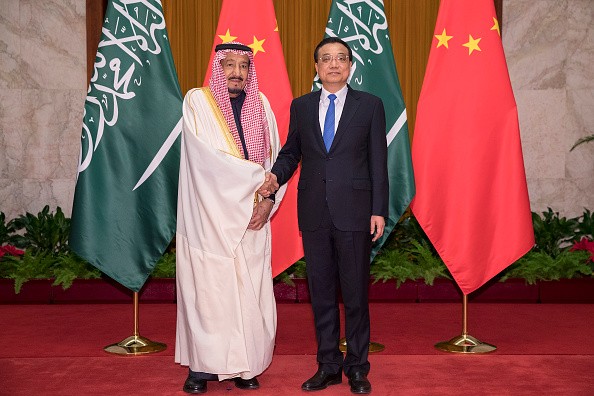Saudi Arabia has regained its position as number one oil supplier to China in terms of volumes for the first two months of 2017.
Nonetheless, Russian oil shipments to China are still increasing year-on-year while oil imports from Saudi Arabia are not what it used to be.
China's oil imports from Saudi Arabia in February were down 12.9 percent compared to the same period last year after it went up by 18.9 percent year-on-year in January.
Meanwhile, China's oil imports from Russia went up by 36.5 percent in January, from a much lower increase of 4.5 percent in February, compared to the same months last year.
In 2016, Russia overtook Saudi Arabia as China's biggest crude oil supplier, with its exports jumping by 25 percent from 2015. Saudi Arabia, which was relegated to second place, saw its exports to China increasing by only 0.9 percent.
Russian oil shipments to China, the world's second-largest oil consumer after the U.S., averaged around 1.05 million barrels per day while Saudi Arabia exported about 1.02 million barrels per day last year to China.
The recent trip to China of Saudi Arabia's King Salman paved the way for more energy cooperation between the two countries. In a joint communique issued on March 18, China and Saudi Arabia acknowledged the importance of a stable oil market, with the former praising the latter for being a "safe and reliable" oil supplier.
To secure Saudi Arabia's advantage in the Chinese oil market, Saudi Aramco will have to extend its marketing reach.
Saudi Aramco entered into a venture with ExxonMobil and Sinopec to refine oil and produce petrochemicals and is also negotiating with China's state-owned oil companies to step up cooperation on crude oil trade, reserves and refineries.
However, the key strategy for Saudi Aramco in China is to be able to sell more crude to independent small refiners, known as "teapot" refineries, which were responsible for boosting Russia's oil exports to China.
Thus, Saudi Aramco has to change the marketing system it had in place for decades of selling crude on long-term contracts to customers known as term customers.
The Russians have the advantage of geographical proximity to China and transport oil via their pipelines.



























